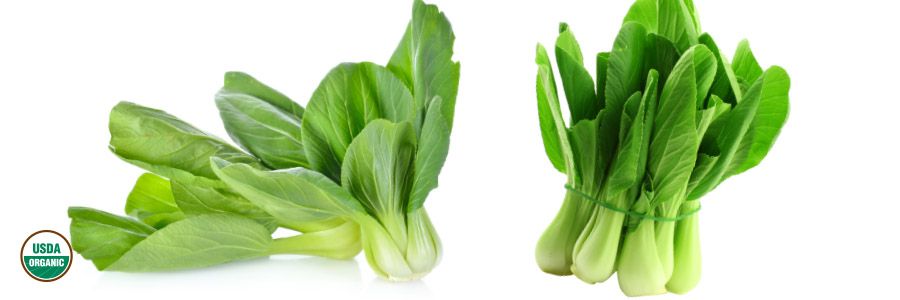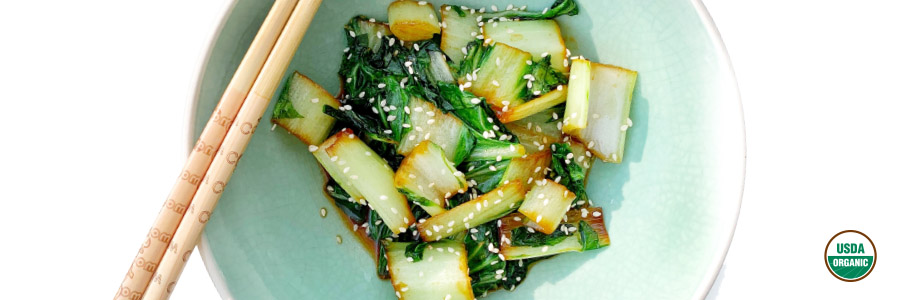


Sign-up for {N}power to get exclusive discounts, newsletters, members-only features, and more!
 Denver - Design District - Alameda and Broadway
Denver - Design District - Alameda and Broadway
368 S Broadway
Denver, CO 80209
United States
 Preferred Store:
Select a Store
Preferred Store:
Select a Store


The oil is heating in the wok and ready for action. Minced garlic, ginger, and chili flakes are added to the pan, and in less than sixty seconds, the fragrance takes over the kitchen, signaling that it’s time for the grand finale. Bok choy is heaped on the cutting board, its white stalks curving into vibrant, green leaves, ready for the sauté. As it cooks, the stems take on caramelized notes without losing their crisp texture, while the leaves wilt to silky, flavor-drenched perfection. Are you ready to dive in?
This Chinese cabbage is about more than culinary stardom—its nutritional value deserves celebrity status too! In company with other cruciferous veggies like kale and collards, bok choy has more micronutrients per calorie than most other foods, and here are some benefits those nutrients can offer you:i ii
Our bodies can’t make vitamin C, so vitamin-C rich foods are a must on the menu, and bok choy contributes a hearty 31.5 mg per cup.iii Among its skin-loving benefits, vitamin C is essential for collagen production, crucial for wound healing, and helps protect against harmful UV damage.iv v
Calcium is fundamental for healthy bone mass and for moderating age-related bone loss.vi Can you guess what veggie is a more bioavailable source of calcium than milk? Yes, your super-crucifer, bok choy!vii viii
It’s a stressful world out there, especially the oxidative stress our bodies encounter when we have imbalances between free radicals and antioxidants.ix Secondary plant metabolites, like phenolic compounds, exhibit a range of free-radical quenching antioxidant activity, and bok choy contains more than 70 phenolic compounds. x xi xii
Metam potassium is not a micronutrient, it isn’t delicious, and it isn’t good for you. It is the pesticide most commonly used on conventional bok choy grown in California, with more than 20,000 pounds applied.xiii It is classified as carcinogenic, neurotoxic, and as a developmental and reproductive toxin.xiv Organophosphates are another group of common pesticides used on conventionally grown bok choy and they do not make for a healthy or tasty meal either. Evidence indicates that even low levels of exposure during pregnancy and early childhood are associated with cognitive and behavioral deficits and neurodevelopmental disorders in children.xv And it doesn’t stop there, unfortunately. There are still more pesticides used on conventionally grown bok choy, including imidacloprid, a neonicotinoid, which we know are toxic to bees and other pollinators.

In addition to being grown without the use of toxic pesticides, studies have shown that organic produce has significantly higher levels of antioxidants than their conventional counterparts. xvi xvii And when you buy organic produce, you are doing so much more than supporting your own health—you are also supporting a system of agriculture that is actively building soil health, protecting water systems, cultivating safe spaces for our pollinator friends, and creating healthier work environments for farm workers and farming communities. It’s a win-win for everyone!



Sign-up for {N}power to get exclusive discounts, newsletters, members-only features, and more!
